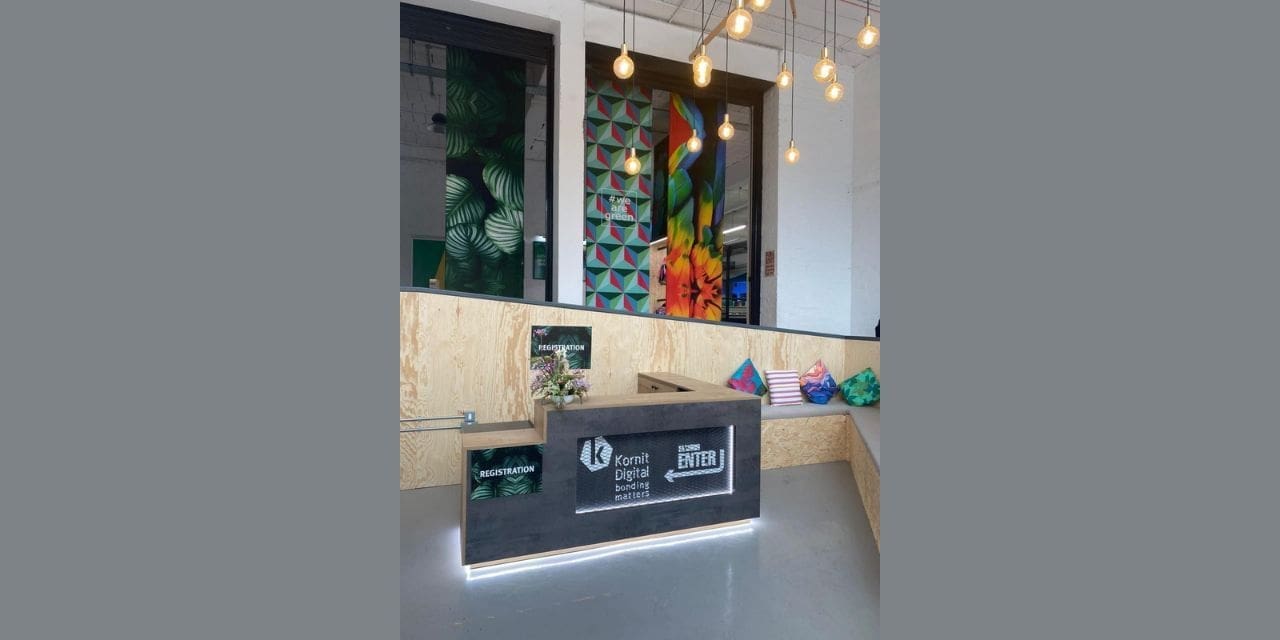March 4, 2022, London, UK– Kornit Digital Ltd. (NASDAQ: KRNT), a worldwide market leader in sustainable, on-demanddigital fashionxand textile production technologies, and Fashion-Enter– a social enterprise, which strives to be a centre of excellence for sampling, grading, production, and for learning and development of skills within the fashion and textiles industry– today announced a first-of-its-kind Fashtech Innovation Centre in London. Aimed at bringing on-demandfashion and textile mass customizationback to the UK, and unveiled on March 3rd and 4th, 2022 at Fashion-Enter’s state-of-the-art training and manufacturing site, the Centre is fully supported by Kornit Digital’s revolutionary, direct-to-fabric and direct-to-garment digital production solutions.

According to Kornit Digital’s Impact and Environmental, Social and Governance (ESG) report, 30 percent of textile production is overproduction, while 95 percent of water waste is created as companies globally look towards more sustainable futures with customized, creative, and real-time offerings.Using proprietary streamlined,eco-friendly digital production technologies, Kornit Digital is transforming the fashion industry with more efficient and sustainable processes.According to the same report, by 2026, the Company’s systems will use up to 95 percent less water, 94 percent less energy and produce 83 percent less greenhouse gas emissions.
In addition to highlighting production capabilities that minimize carbon footprint, the Fashtech Innovation Centre serves as a prototype for brands and fulfillers seeking to mitigate logistical complexities, time-to-market, and supply chain risks by bringing production nearer to the end consumer.Eliminating overproduction and producing on demand, this nearshoring model drives profitability even in highly regulated and high-cost markets while contributing to local economies and removing transport-related waste.

“As our partner ecosystem continues to grow globally by aligning with such leaders as Fashion-Enter, companies are realizing just how powerful sustainable, on-demand digital production can be and the countless inherent benefits it provides,” said Chris Govier, President Europe, Middle East, and Africa, Kornit Digital. “We are pleased to put these technologies on full display in our new joint Fashtech Innovation Centre and bring on-demand manufacturing back home to the UK. Whether you’re a brand, apparel provider, custom fabric fulfiller, or creative designer wondering how to handle the next major market disruption, grow product lines, create a more eco-responsible and accountable production floor – or just want to waste less – the Innovation Centre will help you achieve these goals.”
Serving as a fulfilment siteandacademy for training production, the Centre includes both Kornit Prestodirect-to-fabric and Kornit Atlas MAXdirect-to-garment systems, as well as numerous graphic design and workflow toolsand systems to enable cut-and-sew operations fora comprehensive“pixel to parcel to doorstep” cycle.Consolidating the process into a single location helps maintain full visibility and control of operations and products. Taking this one step further for creators and brands, visitors can experience theKornitX Global Fulfilment Network, enabling customers to create both new sales channels and accessibility to enable production ondemand.Attendeescanseehow Kornit’s single-stepdigital production technology empowers unlimited graphic expression using less floor space, resources, waste, and time—all athigher margins.

“This Innovation Centremakes it possible to capture the full, end-to-end production process in one, single location,” said Jenny Holloway, Chief Executive Officer, Fashion-Enter. “The beauty of having print on demand means there are no minimums, so we can make one garment, or we can make up to 30,000 garments a week from all locations at the same fixed cost. Here, we can also train future generations on the right way of producing garments for today, responsive to demand, with minimal waste—ethical and sustainable. This is the future of fashion and textiles.”

